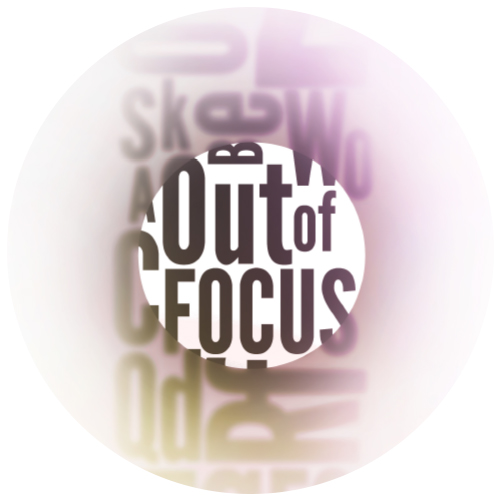Out of Focus: Chapter 5
| November 19, 2024If you are married to a person who has (or might have) ADHD, you might feel ignored and lonely in your relationship

One Sunday afternoon early on in our marriage I noticed my husband seemed glum. We’d gone to the local park and were sitting on the wooden bench together watching our toddlers climb up the ladders and slide down the slides.
But instead of talking, he was swirling his foot in the sand. “Look, Asher’s finally learned to climb the ladder by himself,” I tried.
My husband looked up at our two-year-old at the top of the ladder, smiled briefly, and looked down again.
“Do you think this park is more child-friendly, or the one on Seymour Grove?”
“Both are nice.”
It felt like an awkward first date.
Then my husband’s phone rang, for the fifth time that day, and I couldn’t hold back an irritated, “Why are you getting so many work phone calls on a Sunday?”
“I’m not. They’re from my siblings. To wish me happy birthday.”
I felt dizzy.
It was my husband’s 28th birthday. How could I have forgotten?
My husband was hurt until three months later, when he said, “Why don’t you take out the steaks I bought last week, and we’ll have a special supper?”
I looked up from diapering our squirming toddler and asked, “Why? What’s the occasion?”
“Umm, it’s your birthday,” he responded with wide eyes.
It was starting to dawn on him that my inability to keep on top of the little details, such as remembering to pick up the dry cleaning like he’d asked me to, or yes, birthdays and our anniversary, wasn’t personal.
But it was causing a lot of tension between us. So many of our interactions sounded like, “Rochie, don’t you think you should divide up Shabbos preparations and do a little bit each night so you don’t have to do it all on Friday afternoon?”
His suggestions made me feel like I was 15 again, and not in a good sense, so I’d reply, “Why are you trying to control my schedule? I’m not a child and you’re not my parent.”
And he’d sigh and grab a peeler and a pile of potatoes, even though he was also exhausted from a long day at work and an evening spent learning.
And of course, he’d be awake to daven neitz and get into the city by nine, while I’d stay up late reading and jump out of bed at seven thirty to frantically get school lunches made, and myself and the little ones dressed and out the front door in time for the school start.
A good relationship doesn’t develop automatically; it requires an investment of time, going on date nights, taking walks, playing board games. But when you’re functioning in survival mode, struggling to take care of the basics like lighting Shabbos candles on time and making sure there are clean clothes for everyone, anything that isn’t urgent doesn’t get taken care of. Like spending time together.
As our family and the responsibilities that went with it grew, so did our bickering. I often felt trapped, like I was a naughty school kid who’d been sent to the faculty lounge as a punishment and had gotten stuck there. Sometimes I’d wonder what was going to happen to our marriage, and to our children’s marriages, when so many of our interactions were negative.
Once I was diagnosed and functioning better, things between us did improve organically, but the big shift occurred a few years later, when I came across a book, The ADHD Effect on Marriage, by Melissa Orlov. What she described sounded exactly like my husband and me.
If you are married to a person who has (or might have) ADHD, you might feel ignored and lonely in your relationship. Your spouse never seems to follow up on what he agrees to do — so much so that you may feel as if you really have another child in your home instead of an adult. You feel you’re forced to remind him all the time to do things. You nag, and you’ve started to dislike the person you’ve become….
If you have ADHD, (or think you do), you may feel as if the person you married is buried deep within a nagging monster that lives in your home. The person you had cherished has been transformed into a control freak, trying to manage every single detail of your life together. No matter how hard you try, you can never do well enough for your spouse, even if you are successful elsewhere, such as in your work…. (Orlov, Melissa. The ADHD Effect on Marriage: Understand and Rebuild Your Relationship in Six Steps (pp. 3-4). Specialty Press/A.D.D. Warehouse. Kindle Edition)
I didn’t even read the whole book. (Like many people with ADHD, I have a pile of books I’m in the middle of on my night table, a bunch of started ones on my Kindle, and a few waiting to be read before the return date on my Kindle Unlimited Library.) But just reading these words in the introduction opened my eyes to a perspective I’d never taken into consideration before: my husband’s.
I’d never thought about what it felt like for a person who craves order and calm, who’s super responsible and reliable, to live in a home where everything is flying and unpredictable, where they never know if their spouse will come through with something as simple as supper or their clean suit.
So the next time my husband gave me advice about how to do something, instead of feeling bitter and bossed around, I really tried to implement his suggestion. He really did have good advice. It really did make sense not to use my day off to follow a complicated, multistep recipe for a cream cake that included roasting hazelnuts and rubbing the skin off each individual piece.
When I stopped viewing everything as him telling me what to do, and instead heard it as a practical way to organize our life, I became less defensive and more willing to follow through with his suggestions, and he became more cheerful and relaxed and less bossy.
I’d always seen his penchant for orderliness as a flaw; now I realized it was an asset, and that however hard it was that we were opposites in this respect, it was for our mutual benefit. I needed to learn how to be more on top of things and he needed to learn how to go with the flow. What better way than to be married to someone with the exact skill set you’re missing? Hashem really does know what He’s doing when He’s mezaveg zivugim.
One improvement led to another. Previously we’d avoided spending time with each other; now I suggested that my husband join me on my evening walk. Spending this half hour together in the fresh outdoors brought us closer.
We started to feel much more like rayim ahuvim than two mismatched people struggling to get along.
To be continued…
(Originally featured in Family First, Issue 919)
Oops! We could not locate your form.


